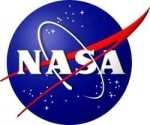Challenge Was To Address Astronaut Health And Performance
Issues
 The Space Life Sciences Directorate
(SLSD) at NASA's Johnson Space Center in Houston has selected three
winning solutions to address astronaut health and performance
issues.
The Space Life Sciences Directorate
(SLSD) at NASA's Johnson Space Center in Houston has selected three
winning solutions to address astronaut health and performance
issues.
Full and partial financial awards were offered for solutions to
three Challenges posted on the
NASA Innovation Pavilion on, an open innovation marketplace
with a global network of more than 200,000 problem solvers. A total
of 1,317 Solvers from 65 countries opened "project rooms,"
representing interest in assessing the Challenges. Ultimately, 128
submissions were received and evaluated for the three NASA
Challenges.
The open innovation competition is a key component of SLSD's
broader framework for innovation, driven by its strategic plan.
"Our first three Challenges yielded outstanding results," said Dr.
Jeffrey R. Davis, director of Space Life Sciences. "As an
organization, we've learned a great deal about the process, and we
were pleased with such widespread participation. The technology
results led to new insights for food packaging, a compact exercise
device and prediction capabilities for solar events. All of these
findings are important new leads to enable long-duration human
spaceflight."
The NASA Innovation Pavilion provides Solvers the opportunity to
develop innovative solutions to the unique challenges faced by NASA
in achieving its mission to pioneer the future of space
exploration, scientific discovery and aeronautics research.
Solutions to these Challenges will benefit not only space
exploration but also may further the development of commercial
products and services in many industries on Earth.
"Accelerating the solutions to problems which affect astronauts
will have a major impact on the future of our space program," said
Davis.
"We are thrilled to see the success of these Challenges and the
applicability of the solutions to a much broader range of problems
in far-reaching fields. InnoCentive is pleased to work with NASA to
apply the power of open innovation and the expertise of our Solver
community to explore new approaches to significant problems in the
aerospace industry," said Dwayne Spradlin, CEO of InnoCentive.
Phase 1 of the competition was kicked off with three JSC
Challenges. A fourth was later added by NASA's Langley Research
Center, and an award is pending.
The first two Challenges were Theoretical Challenges, which
implement an idea but are not yet a proof of concept and require a
written proposal only. They were evaluated on a theoretical basis
considering the current state-of-the-art knowledge.
Yury Bodrov, a scientist from Saint Petersburg, Russia, won a
partial award for his proposal of a new flexible graphite material
for food packaging that is lightweight, has improved barrier
properties, is compatible with sterilization processes and NASA
disposal requirements and can maintain food quality over a
three-year shelf life. Alex Altshuler, a mechanical engineer from
Foxboro, MA, won a full award for his proposal for a compact
aerobic and resistive exercise device, which delivers the proper
motions for exercises in space under very limited or zero gravity
and meets very specific size and space requirements.
The third Challenge resulted in a full award to Bruce Cragin, a
retired radio frequency engineer from Lempster, NH, for his
proposed solution for forecasting solar activity, which poses a
significant radiation exposure risk to both humans and hardware
during space exploration. Until now there has been no method
available to predict the onset, intensity or duration of a solar
particle event. Cragin's solution allows for a 24-hour forecast
window of event onset with 75 percent accuracy. This challenge was
called a Reduction to Practice Challenge, which results in a
prototype that proves an idea and requires the Solver to submit a
validated solution.
"The forecasting solar activity submission was thorough. It
addresses the challenge requirements and exceeds them with respect
to forecast confidence above random prediction," said Dr. Dan Fry,
scientist, Space Radiation Analysis Group.
The fourth Challenge is a Theoretical Challenge for coordination
of sensor swarms for extraterrestrial research.
Three new Challenges were posted on the NASA Innovation Pavilion
on May 27 with a deadline of July 27.
 ANN's Daily Aero-Term (04.28.24): Airport Marking Aids
ANN's Daily Aero-Term (04.28.24): Airport Marking Aids Aero-News: Quote of the Day (04.28.24)
Aero-News: Quote of the Day (04.28.24) ANN's Daily Aero-Linx (04.28.24)
ANN's Daily Aero-Linx (04.28.24) Aero-News: Quote of the Day (04.29.24)
Aero-News: Quote of the Day (04.29.24) ANN's Daily Aero-Linx (04.29.24)
ANN's Daily Aero-Linx (04.29.24)



